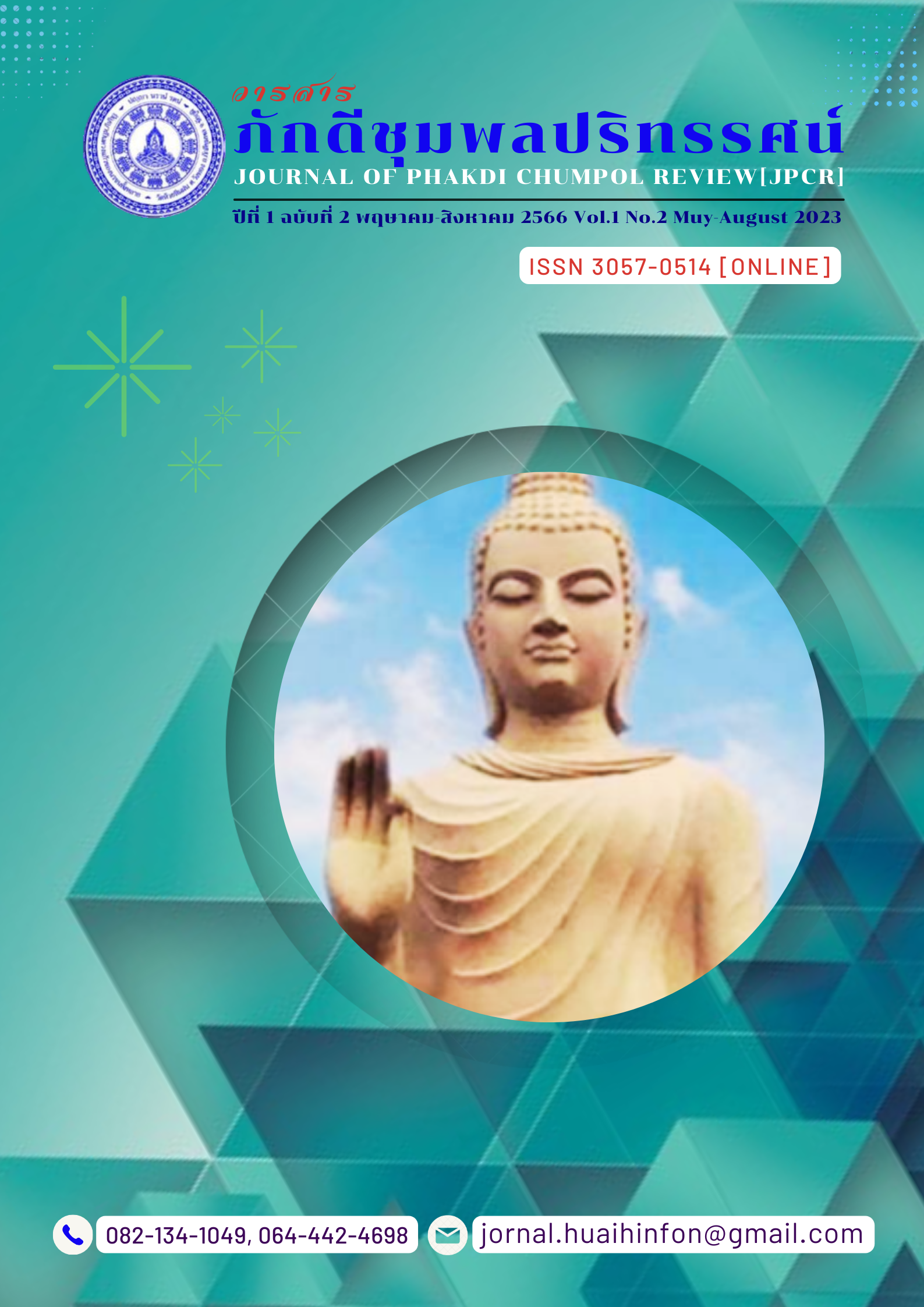Participation of Women in Local Politics According to the Principles of Iddhipadhamma
Keywords:
Participation, local politics, womenAbstract
Political participation is the opportunity for citizens to participate in politics. People can participate in politics in many areas, such as decision-making and carrying out activities. Following up on inspections of government work. The characteristic of political participation is a true awareness of the nature of the problem. Because in the participation of people in that area, they will know the truth of the problem. And make it possible to work together to solve that problem.
Women's participation in local politics can be seen that the United Nations has given importance to women. Because of the importance of women's human rights in participating in the development of their own localities. Nowadays, women have more knowledge and understanding and are more interested in local politics. Therefore, women want to participate in their own local politics in order to promote career development for women. Protect women's rights and help each other solve obstacles in the development of their localities. Therefore, women should have 4 principles of Iddhipada Dhamma: 1. Passion: Satisfaction, not boredom Do not abandon your work or become discouraged. Have encouragement to fight against creative obstacles. 2. Diligence: determined to push there should be determination. Dare to dedicate yourself to actions without expecting anything in return. 3. Mind or Consciousness: Be firm, have careful thoughts, do not allow your thoughts to wander or wander, and always check and take care of your work. 4. Investigation: consider there should be opportunities for people to participate. And check for defects as well as obstacles find a solution that is reasonable and effective.
References
คณะกรรมการส่งเสริมและประสานงานสตรีแห่งชาติ. (2535). สตรีไทย. กรุงเทพฯ: บริษัทอมรินทร์พริ้นติ้งกรู๊พ.
เฉลียว บุรีภักดี และคณะ. (2545). ชุดวิชาการวิจัยชุมชน ชุดการเรียนรู้ด้วยตนเอง หลักสูตรประกาศนียบัตร บัณฑิตการจัดการและประเมินโครงการ. นนทบุรี: เอส.อาร์.พริ้นติ้ง แมสโปรดักส์.
ชาญชัย คุ้มปัญญา. (2553). อุดมการณ์ทางการเมือง เอกสารประกอบคาบรรยาย รหัสวิชา 2551120 ฉบับเดือนมีนาคม 2553.
นรินทร์ชัย พัฒนพงศา. (2546). การมีส่วนร่วม: หลักการพื้นฐาน เทคนิคและกรณีตัวอย่าง. พิมพ์ครั้งที่ 2. กรุงเทพฯ: สิริลักษณ์การพิมพ์.
บวร ประพฤติดี และคณะ. (2520). สตรีไทย : บทบาทในการเป็นผู้นำการบริหาร. กรุงเทพฯ: โรงพิมพ์ ไทยเกษม.
พระธรรมปิฎก (ป.อ. ปยุตฺโต). (2542). พุทธธรรม. พิมพ์ครั้งที่ 8. กรุงเทพฯ: โรงพิมพ์มหาจุฬาลงกรณราชวิทยาลัย.
เมตต์ เมตต์การุณ์จิต. (2553). การบริหารจัดการศึกษาแบบมีส่วนร่วม : ประชาชน องค์กรปกครองส่วนท้องถิ่น และราชการ. พิมพ์ครั้งที่ 2. กรุงเทพฯ: บุ๊คพอยท์.
มหาวิทยาลัยสุโขทัยธรรมาธิราช. (2543). การมีส่วนร่วมของประชาชนในการพัฒนาชนบท. นนทบุรี: มหาวิทยาลัยสุโขทัยธรรมาธิราช.
วิทยาลัยพัฒนาการปกครองท้องถิ่นสถาบันพระปกเกล้า. (2551). สตรีกับการเมือง. นนทบุรี: โรงพิมพ์ธรรมดาเพลส.
ศุภสวัสดิ์ ชัชวาล. (2545). การปกครองท้องถิ่นกับการมีส่วนร่วมของประชาชน. พิมพ์ครั้งที่ 3. กรุงเทพฯ: อีพีเอปริทัศน์.
สำนักงานเลขาธิการสภาผู้แทนราษฎร. (2561). การมีส่วนร่วมทางการเมืองในระบอบประชาธิปไตย. กรุงเทพฯ: สำนักการพิมพ์สำนักงานเลขาธิการสภาผู้แทนราษฎร.
สำนักงานเลขาธิการสภาผู้แทนราษฎร. (2554). การมีส่วนร่วมทางการเมืองของประชาชน. หนังสือและสื่อเผยแพร่. กรุงเทพฯ: สำนักประชาสัมพันธ์.
สำนักงานเลขาธิการวุฒิสภา. (2565) “บทบาทสตรีไทยในยุคไทยแลนด์ 4.0” [ออนไลน์] แหล่งที่มา : https://www.naewna.com/lady/columnist/35117 [13 ตุลาคม 2565].
Lenore Manderson. (1980). Woman Political and Change. London: Oxford University Press.
Danis Mcquail. (1987). Mass Communication Theory: An Introduction. London: Sage.




